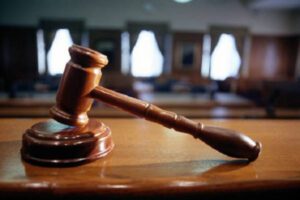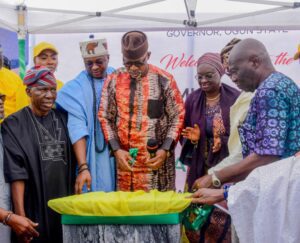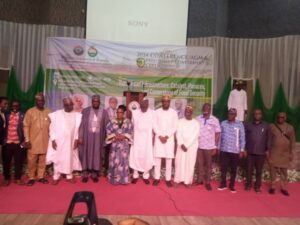
NOSDRA sanction: Oil firms are more careful now with the environment — IDRIS MUSA, DG
The Director General, National Oil Spill Detection & Response Agency (NOSDRA), Mr. Idris Musa, in this interview with the PUBLISHER, NIGERIAN NEWSDIRECT, DR. SAMUEL IBIYEMI, speaks on the restoration programme of oil companies in the upstream and downstream of the oil and gas sector. He mentioned that while oil companies have been doing well in terms of oil spill clean-ups and remediations, they need to become more responsive in terms of restoration for affected ecosystems. He mentioned that pragmatic efforts have been taken in engaging with stakeholders in the downstream to mitigate against the spate of explosion and tanker-related accidents. According to him, part of the measures would involve the adoption of technology to prevent explosion during accidents. Excerpts:
Are you satisfied with the restoration program of oil firms operating in both downstream and upstream sector?
It’s been two years that I have been appointed. We have really been following up on the activities of oil companies both upstream and downstream, particularly the upstream. In terms of oil spill clean ups and remediations, they are doing quite well. They have been more responsive in terms of clean up and remediation. The restoration part is where they need to concentrate more efforts. This is because in some of the areas where we have oil spillage, particularly areas that are very prone to antisenal refining, oil thefts, and regular spills, it has been discovered that the mangroves and the ecosystem are withering. To get the mangrove back to the space is very challenging. Challenging in the sense that it takes time to grow. Let me borrow from the words of the group that conducted environmental assessment study of Ogoni Land — it will take up to 20-25 years before a mangrove that is destroyed can get fully restored. In other words, from the seedlings until it gets into canopy, it takes sometime. Those are the issues that we have. For the areas that have mangroves that have already withered, it will still take some time. However, the good news there is, there are in the Niger Delta, especially in Port Harcourt axis, a number of individuals who have luxury farms where they raise mangroves. So at the appropriate time when all these areas where they are remidiated are fully certified especially in Ogoni Land, we will be able to beckon on those people that have mangrove seedlings to come and see where they can venture into by way of selling their plants, seedlings of mangrove and then begin to raise the destroyed mangrove forest. This is a major aspect of restoration. In doing this, we are going to start creating habitats for some species. We are also going to be providing cover and thereby reducing the high rate of evaporation. Where we have evapotranspiration, it is much better than having direct evaporation. Direct evaporation, as a matter of fact, are also part of what will lend power to the erosion that we have. This is because the trees that are supposed to provide some kind of shield and shade for erosion are no more there. So with this restoration process, I think, we will be able to go a long way. For our own side of the environment, the real generation of the ecosystem in areas where oil spills have devastated, we come in a long way by way of sustaining those areas as much as possible.
What of the activities of downstream, because for sometime now, we have had tankers’ spillage and tankers’ accidents. What are you doing to hold the downstream operators responsible for clean up and restoration?
For the downstream, we have made several efforts in the recent past. Because we focused more on the upstream initially.We are now redirecting our focus to the downstream. The people operating In this area are very many. We have them in three groups, there are DAPMAN, IPMAN that have the biggest footprints in Nigeria. They are in the all 774 local governments in Nigeria. They are everywhere. We also have MOMAN. We have interacted with each and every one of these groups through their executive teams to sensitize them on our activities in the downstream and they responded very well. We have had at least four meetings with members of these groups. Inspite of the COVID-19, we also held virtual meetings with them. Another aspect that we brought in in-terms of accident of tankers, was the meeting we held with the Federal Road Safety Corps, Federal Fire Service, the operators of these three groups; DAPMAN, MOMAN and IPMAN. We called these meetings to sensitize them further and to let them have solutions to some of these tankers’ accidents that explode. We also got in touch with a private company that has a technology that can prevent explosion. We have brought the company into this. We held meetings with these three groups (Unions) together with the company that made the technology that can prevent explosion. You know when a tanker falls, in the process of burning, there is explosion. The explosion does more damage than the fire itself because when it explodes, it goes wider, more intense and more hazardous. So we have met with them just last week. We held a meeting with all these stakeholders; DAPMA, IPMAN, MOMAN, as well as FRSC, FFS. This company that manufactures the technology will begin to teach them one after the other to further teach them on how to acquire this technology so that whenever they have any fire incident at all, explosion coming from that is already safeguarded. What they can do then will be to see how they can quench and extinguish the fire as quickly as possible. This will go a long way in making a kind of hazard we have very much reduced. Besides that, we are also going to ensure this, that is why we engaged the FRSC because they deal with people and the environment. If all these tankers are compelled by regulation to insert this technology inside their tankers, even when it falls, the product will be conducive for a very safe environment. That is what we have done with the tankers. Again, we also observe that the capacity of the tankers had increased further than what it used to be. Before now, a tanker could be carrying about 30 thousand litres of petroleum products. But today, a tanker could be carrying 45-60 thousands litres of petroleum products on our roads. They end up doing three things; they damage our roads. if any accident happen, there is more likelihood of more damage to the environment and loss life and properties. Thirdly, the vehicle themselves, the tractors pulling the tankers are not as strong as they should be. That is why, if you notice, in Lagos at a place called Otedola bridge, is a sloppy area. When a Tanker is loaded with a 60,000 litres of petroleum products and moving down the hill. Because of the heavy load that is pulling, it makes them to lose control most of the time. And when they lose control, they drop. Once the tankers fall down, they catch fire and explode. Where they succeed to move down the slope, in the course of moving up, some of them are not as strong enough to continue pulling the same load up the hill. Once they find it difficult, they reverse. These are the roads that many motorists ply with different categories of vehicles. And when a car that failed to move up the hills suddenly reverses, whatever it meets on the road will be jammed. That is why if there is any accident on Otedola Bridge, there is always a lot of problem. The FRSC is worried about it. And they are working assiduously on how to put it in control. Like I said, vehicular movement is not our job. But the environment is our own job. So, the two of us are now linking up to see how we can jointly do our bit to achieve the mandate safe driving and a safe environment.
When will the implementation commence?
A lot of sensitization has to be put in place. And we are part of the committee that was set up. The implementation is going to be such that once this private company moves round, we will give them some time to holistically look at their budgets. Thus, it is something that should be done as quickly as possible, so that they can reduce the amount of risk. Also the case of Depot owner like what we had in Lagos last termed OVH Fire in Apapa. So, if they had this technology inside that tank, they will just worry less about explosion which is deadlier than the fire itself. So, what they would have to contend with is removing the fire. Even the fire itself, we are also working with some other companies that have capacity whenever fire happens to go up and extinguish the fire by spraying foams on it as they do in developed countries. There are certain levels of fire that you attend to not by merely spraying foam or water by muzzle, but to go with helicopter and then attack from the top. This will be faster and more efficient. We are already working on that one too. All these things are in processing but because they are capital intensive, they take sometime. We are looking at June/July to get the right funding. As for the users, we have sensitized them on the implications of getting them in their facilities.
How far about the amendment to NOSDRA Act?
The amendment to the NOSDRA Act was sent in. There was a bill that was passed by the 8th Assemby. But unfortunately, it was not assented to. However, when I resumed duty, we kick started that process again. Happily, the bill has passed the house of Representatives and is being transmitted to the Senate. We expect that anytime from now, the Senate will pick it up. Once Senate is done with its own part, it will be ready for Mr President for Assent. If we are able to get this done, it will move the agency and the country forward. This is because the agency will have more power to discharge its mandate. If we wanted to discharge our mandate as it should be, we will have less problems with the environment in the Petroleum sector. I have always mentioned that our own case as National Oil Spill and Detection Response Agency (NOSDRA) is such that we prevent, and pre-empt any happenings, as much as possible. And because we pre-empt in most cases people do not seem to see it. If it happens suddenly and we are unable to manage it, that is when you see a lot of distortion and a lot of Jacket and Coats in the media, claiming to be one expert or the other. But when we work silently preventing, people do not know. For instance, if you say the police are not doing well, let the police put down tool for one week, that’s when you will realize how much police are doing to get everyone move freely and secured. This is the same thing we do. When oil companies are put in check, when they spill, they quickly rally round to see how they can mop up and remediate. People do not see these things. Because the oil companies know that there is NOSDRA watching their activities all the time, they are more careful with the way they handle the environment these days. This is what I have been able to achieve. At the end of every year to coincide with world environment day, we intend to bring up a programme whereby we accord companies that have behaved very responsibly and highly complying with environmental regulations with awards to put them into check and also encourage those who are doing well. But for those who are not doing well, it will be a challenge for them to begin to do well. We had something like this in the days of Federal Environmental Protection Agency (FEPA). The oil industry operators that were in operation at that time were given some kind of questionnaire and then they were awarded in accordance with their response to the environment operation. I want to reinvent that again so that we will put these oil companies in a state whereby there will be competition to be environmentally complaint.
How do you fund all these operations?
The funding has been primarily coming from the federal government through budgetary allocation and occasionally we get some assistance from the donor agencies by way of capacity building through direct training and workshop of our officers. Yet, this is not enough to cope with the mandate that we have.



